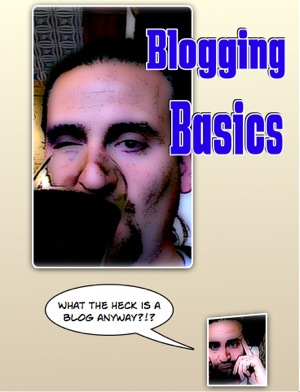My sites get a lot of traffic from folks who don’t spend every waking moment of their life perusing the Internet, and every once in a wile I like to do a little summary of how this blog works and some similarities and differences between it and a newspaper, magazine, radio show, or any other form of media with which you might be more familiar. Though this post pertains specifically to doublebassblog.org and Contrabass Conversations, it’s probably a similar situation for other blogs and podcasts that you might like, so this might be a quick glimpse behind blogging and podcasting in general for you. 
1. Blogs are fluid – Most newspapers, magazines, radio programs, and television shows have a specific and recurring format for their content. Blogs are more flexible creatures, being able to offer “news wire” reporting, opinion, long articles, short blurbs, or anything in between. Because it’s online, the entire archive of content (around 2500 posts for doublebassblog.org!) is accessible to readers. Blogs can therefore become vast reference libraries of content that can be cross-referenced in a variety of ways. On doublebassblog.org, for instance, you can search by category and keyword, but you can also go “spelunking” by accessing our deep content through our Articles page or Features directory.
2. Blogs combine, text, pictures, audio, and video – Newspapers and magazines can’t play audio or video (not the ones I read, at least!), and reading page after page of text on a television is an exercise in pain, but the online experience offered by blogs allows for a seamless melding of all these different types of media. This allows a particular subject to be covered in a richer fashion than either audio, video, or print can alone, and the ability to link out to web resources makes this media exponentially more powerful than an old media format.
3. Blogs are built for feedback and reader participation – Let’s face it–most people who write letters to the editor are considered to be a little eccentric, if not outright kooky. But writing a comment on a blog is not unusual in the least, and the ease with which one can comment on a blog fosters much more reader participation than old media formats. Bloggers who are interested in building a community and giving their readers a sense of ownership (an attitude that I hope most bloggers have!) will respond and react to comments, often generating new posts as a result of feedback from readers. I know that I get around 30% of my material from comments and e-mail sent in by readers, and I think that doublebassblog.org is a much more interesting site than it would be otherwise.
4. Blogs can cover a very specific niche – Operating a broadcasting operation through traditional media channels (TV, radio, print) costs a lot of cash. Publishing a magazine is expensive. Operating transmitters is expensive. The Internet is quick, efficient, and–best of all–dirt cheap. Keeping costs down means that sites can cater to a niche audience (like bass players, for instance!) and still turn a profit.
5. Blogs are taking over – This is the wave of the future, folks. Media behemoths like the New York Times, CNN, Time, and ABC are shifting their focus over to the Internet more and more each month. This method of disseminating content is here to stay, and it will only grow more robust over time as web-enabled devices become an ever greater part of our days and nights.
Bass News Right To Your Inbox!
Subscribe to get our weekly newsletter covering the double bass world.
